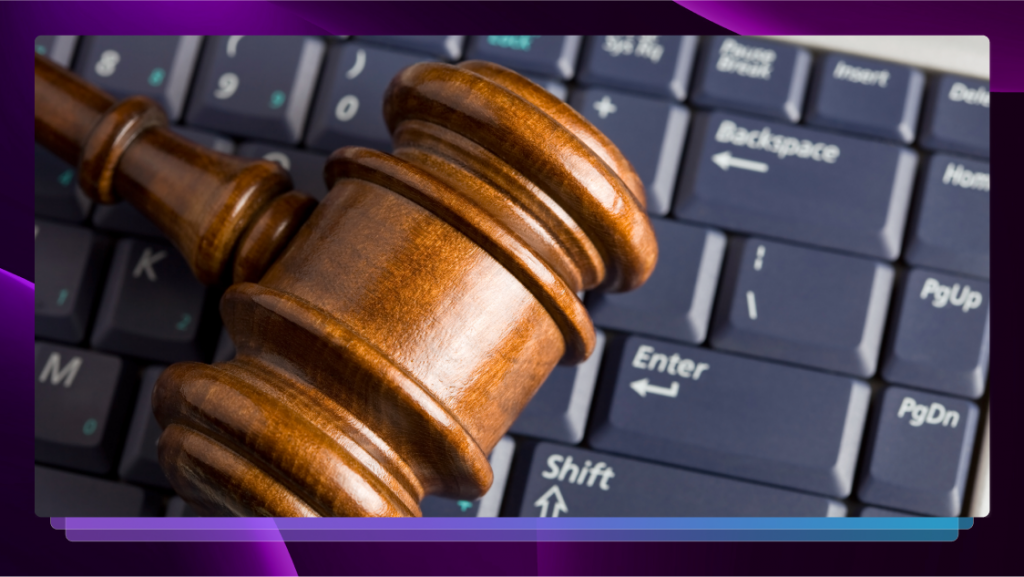Legal video depositions best practices: From lighting setup to audio clarity
Wiki Article
The Significance of Lawful Video Clip Depositions in Modern Legal Services: What You Should Know
Lawful video clip depositions have come to be crucial in today's lawful landscape. They offer a multidimensional sight of witness testimonies that traditional transcripts merely can not match. By recording both non-verbal and spoken communication, these depositions enhance the total understanding of a witness's reputation. The efficiency of video clip depositions pivots on different variables, including compliance with legal standards and best practices. Exploring these elements reveals their real relevance in contemporary lawful solutionsWhat Are Lawful Video Depositions?
Lawful video depositions offer as a vital device in the litigation process. They involve taping witness testaments in a video clip style, recording both non-verbal and verbal interaction. This approach enables lawyers to document the attitude, expressions, and responses of witnesses, supplying a richer context for the statement. Typically carried out in a controlled environment, these depositions are led by attorneys that ask inquiries while a court press reporter records the dialogue. The resulting video can be important for test preparation, as it allows lawyers to evaluate the reliability of witnesses and refine their strategies. Furthermore, lawful video clip depositions can be made use of in different legal contexts, varying from civil conflicts to criminal situations. The auditory and visual aspects of video depositions enhance the presentation of proof, making it an important element in the modern-day legal landscape. On the whole, they contribute significantly to the efficiency and effectiveness of lawful proceedings.
Advantages of Video Clip Depositions Over Conventional Approaches
Video depositions supply many advantages compared to typical approaches of taking witness testimonies. One significant benefit is the ability to capture both aesthetic and audio aspects, supplying an extra complete record of the witness's statements. This dual style boosts clearness and permits legal professionals to reference specific subtleties throughout trial preparation. Furthermore, video clip depositions promote remote participation, making it simpler for witnesses who might be unavailable for in-person looks as a result of geographical constraints or health and wellness issues.Moreover, video depositions can speed up the total deposition process, reducing the time and costs associated with travel and logistics. They likewise enhance ease of access, as recorded depositions can be quickly shared amongst legal teams and referenced at any kind of time. This comfort adds to better instance management and prep work. Generally, video depositions stand for a modern, reliable strategy to collecting witness testaments, aligning with the advancing demands of the lawful career.The Role of Body Language and Tone in Testimonies

In lawful video depositions, body language and tone play essential functions in sharing a witness's integrity and dependability. Nonverbal signs can give understandings right into a witness's emotion, influencing just how their statement is perceived. Comprehending the influence of these elements is important for jurors and lawyers alike when assessing the integrity of a statement.
Nonverbal Communication Insights
While verbal interaction is commonly stressed in legal testaments, nonverbal hints such as body language and tone play an essential role in communicating reputation and emotion. Observers of depositions may keep in mind that a witness's stance, motions, and facial expressions can substantially affect assumptions of integrity. Consistent eye contact might signify self-confidence, while preventing look might suggest dishonesty or pain. In a similar way, the intonation-- its pitch, pace, and quantity-- can impart sensations of genuineness or uncertainty. Legal professionals have to be in harmony with these nonverbal signals, as they typically provide essential context that enhances talked words. Understanding these subtleties can boost the efficiency of depositions and influence the end result of legal process.Emotional Tone Impact
The psychological tone conveyed throughout legal testaments considerably impacts just how a witness is viewed. Body language, singing inflections, and facial expressions play essential duties in forming the narrative of a testimony. A witness displaying confidence with constant eye get in touch with and a tranquil tone can impart a feeling of reliability and involvement. Conversely, indicators of anxiety, such as fidgeting or a shaky voice, might lead to uncertainty regarding their account. The subtleties of psychological expression can affect the interpretation of realities, making it vital for legal specialists to acknowledge these hints. In video clip depositions, the visual and auditory visit this website elements incorporate, highlighting the value of emotional tone in conveying sincerity and reliability within the legal procedure.Reliability and Reliability
A crucial variable in establishing trustworthiness and dependability during statements hinges on the witness's body movement and intonation. Viewers frequently depend on non-verbal signs-- such as eye contact, pose, and motions-- to assess a witness's sincerity. For example, a witness that maintains eye get in touch with and presents open body language might be regarded as more reputable and truthful than one who stays clear of eye get in touch with or shows up blocked. Additionally, tone of voice plays an important function; a consistent, tranquil tone can strengthen the integrity of the testament, while variations in pitch or quantity may elevate uncertainties. Inevitably, the combination of body movement and singing tone considerably influences how a witness's declarations are gotten and translated in a legal context.Ideal Practices for Carrying Out Video Depositions
Conducting video clip depositions needs careful preparation and execution to guarantee a reliable and clear presentation of testimony. Initially, it is essential to choose a silent, well-lit area to lessen diversions and secure optimum video top quality. The tools ought to be tested in development, including electronic cameras, microphones, and lighting, to stay clear of technological problems during the deposition.Next, parties entailed should review the style and procedures ahead of time, making certain that every person understands their duties. The deponent should be informed on the procedure, including exactly how to react plainly and concisely.Additionally, maintaining an expert disposition throughout the session is important. This consists of avoiding speaking over each other and confirming that all questions are routed appropriately. It is essential to record the deposition in a format that allows for simple playback and testimonial, protecting the honesty of the testimony for future use.Lawful Considerations and Compliance Issues
Exactly how do legal considerations and conformity problems influence the performance of video clip depositions? Legal experts have to browse an intricate landscape of regulations, making certain that video depositions adhere to jurisdictional rules and standards. Compliance with laws concerning personal privacy, consent, and recording methods is essential. Getting explicit authorization from all events entailed is needed to prevent lawful repercussions.Additionally, the admissibility of video evidence in court can hinge on compliance with procedural requirements. Guaranteeing that the equipment used meets technological criteria is additionally crucial, as low quality can threaten the deposition's reliability.Moreover, attorneys must be mindful of any type of particular state regulations that regulate video depositions, as these can differ considerably. Failure to resolve these factors to consider can not only threaten the stability of the deposition however likewise affect the overall case approach, inevitably impacting the client's lawful results.How Video Clip Depositions Impact Court Perception
While video clip depositions can act as effective tools in lawful proceedings, their influence on court understanding is considerable. The auditory and aesthetic components of video recordings provide jurors with a much more thorough understanding of witness temperament, trustworthiness, and psychological reactions. This multimedia strategy can enhance the jurors' capability to analyze the dependability of statement contrasted to traditional text-based transcripts.Moreover, video depositions permit jurors to observe body language, intonation, and faces, every one of which can influence their interpretation of the witness's statements. The presence of a witness on display can humanize them, promoting compassion and connection, which might persuade jurors' point of views. On the other hand, a witness that shows up untrustworthy or incredibly elusive on video clip may cause negative perceptions that influence a jury's choice. Inevitably, the vibrant nature of video depositions plays an essential duty in shaping how jurors translate evidence and reach their decisions.The Future of Video Clip Depositions in Legal Technique
As innovations in modern technology proceed to reshape the legal landscape, the future of video clip depositions is positioned for considerable advancement. Technologies such as synthetic intelligence, virtual reality, and enhanced video conferencing tools are expected to streamline the deposition process and improve ease of read this post here access. Attorneys might make use of AI-driven analytics to examine witness reputation and situation strength a lot more effectively.Moreover, the combination of digital fact might enable juries to experience immersive simulations of depositions, providing much deeper context and understanding. In addition, the trend toward remote depositions is likely to linger, using higher versatility for clients and attorneys alike.As remote job comes to be increasingly stabilized, video depositions will likely come to be common method, decreasing expenses and time restrictions connected with conventional approaches. Generally, these technical improvements guarantee to improve the efficiency, performance, and access of video clip depositions in legal practice, inevitably changing exactly how attorneys plan for test.Often Asked Questions
Exactly How Much Do Legal Video Clip Depositions Generally Price?

Can Video Depositions Be Used in Any Type of Situation?
Video depositions can be used in different types of cases, including civil, criminal, and family members law. Their versatility enables lawyers to existing witness testaments effectively, adjusting to the certain requirements of different legal circumstances.What Equipment Is Required for a Video Deposition?
To carry out a video deposition, crucial devices includes a high-grade electronic camera, microphone, lighting, and a reputable recording device. Furthermore, a computer with editing and enhancing software program might be required for post-production and formatting the last video clip.For how long Does a Regular Video Clip Deposition Last?
A regular video deposition lasts in between 2 to 4 hours, depending on the intricacy of the instance and the number of inquiries positioned. Extensive sessions might happen, yet breaks are typically included for individual comfort.

Are Video Depositions Admissible in Court?
Video depositions are typically acceptable in court, offered they stick to lawful requirements and regulations of proof. Their use improves clarity and maintains witness statement, aiding in the judicial process throughout tests and hearings. Lawful video clip depositions have actually ended up being essential in today's lawful landscape. In addition, legal video depositions can be used in various legal contexts, ranging from civil disputes to criminal instances. In addition, video clip depositions help with remote participation, making it less complicated for witnesses who may be not available for in-person appearances due to geographical constraints or wellness issues.Moreover, video depositions can quicken the general deposition process, minimizing the time and costs linked with travel and logistics. Making certain that the devices utilized fulfills technical criteria is likewise important, as bad top quality can undermine the deposition's reliability.Moreover, attorneys have to be conscious of any kind of particular state regulations that govern video clip depositions, as these can differ substantially. In addition, the fad towards remote depositions is likely to continue, offering better adaptability for lawyers and customers alike.As remote job becomes significantly great site normalized, video depositions will likely come to be common method, lowering expenses and time constraints linked with traditional approaches.Report this wiki page